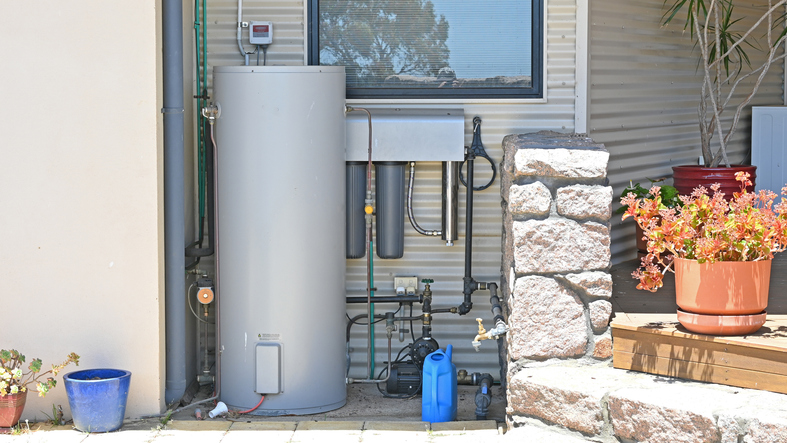Your water heater is one of the most essential appliances in your home, providing hot water for showers, washing dishes, and laundry. However, like all appliances, it has a limited lifespan and will eventually need to be replaced. Ignoring the signs that your water heater is failing can lead to unexpected cold showers and even water damage. Here are some key signs that it might be time to replace your water heater.
- Age of the Water Heater
The age of your water heater is a primary factor in determining whether it needs replacement. Most traditional water heaters have a lifespan of 8 to 12 years. If your unit is within this age range, it’s time to start considering a replacement. Check the manufacturer’s label for the installation date if you’re unsure of its age. - Rusty Water
If you notice rusty water coming from your hot water taps, it’s a clear indication that your water heater may be rusting from the inside. This is a serious issue that can lead to leaks and other damage. While rusty water could also be caused by rusty pipes, it’s wise to have a professional plumber inspect your water heater to determine the exact cause. - Strange Noises
As water heaters age, sediment builds up at the bottom of the tank. When the heater is in operation, this sediment can harden and create a rumbling or banging noise. These noises indicate that your water heater is struggling to heat the water effectively and may be nearing the end of its life. Excessive sediment buildup can also lead to increased wear and tear on the tank, causing leaks. - Leaks Around the Unit
Any moisture or puddles around your water heater are signs of trouble. Leaks can occur due to fractures or cracks in the tank caused by repeated heating cycles. Even a small leak can quickly turn into a large one, leading to water damage in your home. If you notice any leaks, it’s crucial to address them immediately by consulting a plumbing professional. - Inconsistent Water Temperature
If your hot water fluctuates between hot and cold or doesn’t stay hot for as long as it used to, your water heater may be losing its efficiency. This inconsistency can be due to several issues, such as a failing heating element or a build-up of sediment. If repairs don’t solve the problem, a replacement might be necessary to restore a consistent hot water supply. - High Energy Bills
An inefficient water heater has to work harder to heat your water, leading to higher energy bills. If you notice a significant increase in your utility costs without a corresponding increase in water usage, your water heater could be to blame. Newer models are much more energy-efficient, and replacing an old unit can result in substantial savings over time. - Frequent Repairs
If you find yourself constantly calling a plumber to fix your water heater, the cost of these repairs can quickly add up. In many cases, it’s more economical to replace an old, unreliable water heater than to keep spending money on repairs. Frequent issues are a sign that the unit is wearing out and replacement is a more practical solution. - Reduced Water Flow
Sediment and mineral build-up not only cause noise but can also restrict water flow through the pipes connected to your water heater. This reduced flow can affect the efficiency of your entire plumbing system. If you notice a decrease in water pressure when using hot water, it could be due to sediment build-up in the heater.
Recognizing the signs that your water heater needs to be replaced can save you from unexpected breakdowns and water damage. If you’ve noticed any of these warning signs, it’s essential to consult with a professional plumber to assess the condition of your water heater. Replacing an old or failing unit with a new, energy-efficient model can provide reliable hot water and peace of mind for years to come.
If you need assistance with your water heater, whether it’s inspection, repair, or replacement, contact Just Plumbing. Our experienced team is here to help you with all your plumbing needs. Call us today to schedule a service appointment!
